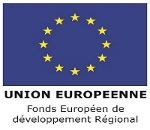Laboratory of Chemistry of Natural Substances (LCSN)
EA 1069
Contact
SOL Vincent – Director
Tél. : + 33 (0)5 55 45 74 90
vincent.sol@unilim.fr
WEBSITE
Adress :
LCSN – Faculté des Sciences et Techniques
123 av. Albert Thomas
87065 LIMOGES Cedex
Administrative Supervision : Université de Limoges
Local Institute : GEIST
Doctoral School : ED 524 Bio-Santé – ED 523 : Gay Lussac « sciences pour l’environnement
Associated Research Master : Biomolécules Catalyse et Environnement / Génétique
Key figures ( 31/12/2015)
Professors : 30
Accreditated to direct research (HDR) : 16
Doctoral Students : 26
Engineers, Technicians, Administratif staff : 12
Scientific Publication (2011-2014)
Books : 2
Book chapters : 12
Thesis defended : 5
Conference presentations : 97
> WEBSITE PUBLICATION
Conferences, seminars organized
Presentation
The LCSN is an original multidisciplinary structure devoted to developing therapeutically and phytosanitary-active molecules and to valorizing biomass. The first line of research aims to develop biomolecules (Photosensitizers and polyphenols) for therapeutic applications in particular cancer. For example, we synthesize photosensitizers (porphyrins or chlorins) suitable to specifically destroy, under the action of light, either tumors or bacteria. One of the important themes of this axis is to vectorize specific ways these active molecules (photosensibilsateurs or polyphenols) to the diseased (cancerous) cells without affecting the healthy tissues. We develop new agents vectorisations as polyamines or specific peptide sequences but also nanoobjects such as cellulose nanocrystals or gold nanoparticles. Biological tests in vitro and in vivo have demonstrated the activity of a considerable number of these compounds on cancer cells and on pathogenic bacteria. The second research area is aimed at valorizing biomass by modifying agricultural and forestry by-products (cereal brans, straw, corn cobs, bark and sawdust). Plastics have been produced from these raw materials. With bark, we have made micropollutant filters to trap heavy metals contained in water. This work is associated with studies on the role of glycosylation in the response of trees to environmental stress and is linked to a phytoremediation program that, in particular, analyses the in-vivo influence of metals on plant carbohydrates. Finally, the LCSN has initiated a program that aims, firstly, to degrade or modify plant polysaccharides via an enzyme action to obtain antibiotic, anticancer or anti-allergy molecules and, secondly, to study carbohydrate and proteic determinants involved in probiotic activity of bacteria. The processes for manufacturing new products use “green chemistry” methods. The laboratory has the indispensable analytical and biological testing means for carrying out groundbreaking research. The LCSN has developed key relationships with institutional and industrial organizations. The valuation of the laboratory’s research activities have allowed the creation of five start-ups.
Research themes
Organic Synthesis ; Organic Chemistry ; Therapeutic Chemistry ; Green Chemistry ; Plant Chemistry ; Biological evaluation ; Probiotics and Prebiotic ; Oligosaccharides ; Wood Xylogenesis ; Polyphenols
Keywords
Bio-Organic Chemistry ; Natural-Product ; Chemistry ; Carbohydrates ; Porphyrins ; Cellulose ; Wood ; Polyphenols ; Natural Resources ; Polysaccharides
Equipements / Ressources techniques
Spectroscopy (IR,IR Microscopy, RAMAN Microscopy UV-vis, NMR, mass, absorption atomic, fluorescence, nanoziser, EPR, etc.) Chromatography (HPLC, GC/MS, LC/MS, combiflash, etc.) / ultracentrifugation / UF and reverse osmosis Mono and two-dimensional electrophoresis CO2 incubator Cell culture material, Microwave , lyophilistor
Industrial applications
Biomass Valorization ; Cosmetics ; Pharmaceuticals and Food Supplements Biofertilizer
Fields of application
Organic chemistry, Agrochemistry, Agroressource, Environment, Pharmaceutical, Cosmetics, health
Partnerships
Active National University Partnerships : Universities of Rouen, Bordeaux, Paris-6, Paris 11, Poitiers, Montpellier, Béthune, Nantes (INRA), (UAGPF-INRA), Clermont Ferrand (PIAF), Nancy, Reims, CNAM de Paris, Limoges (ENSCI), Poitiers, La Rochelle, Toulouse Current International University Partnerships : Cluj (Romania), Taïchung (Taiwan), Trois Rivières (Canada), Kenitra (Morocco), Monastir (Tunisia), Hull (Great Britain), Neuchatel (Suisse), Dublin (Ireland) Louvain la Neuve (Belgique), BLIDA (Algérie), Marrakech (Marocco) National Industrial Partnerships : L’OREAL, SILAB, SOTHYS, ID BIO, Pe@rl, AREVA, Lafarge, SANOFI-SYNTHELABO

